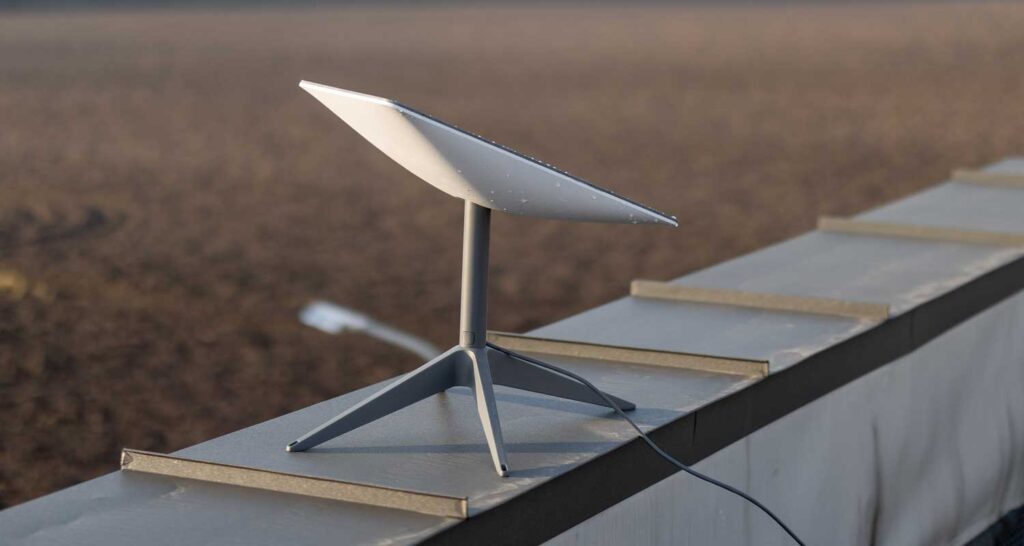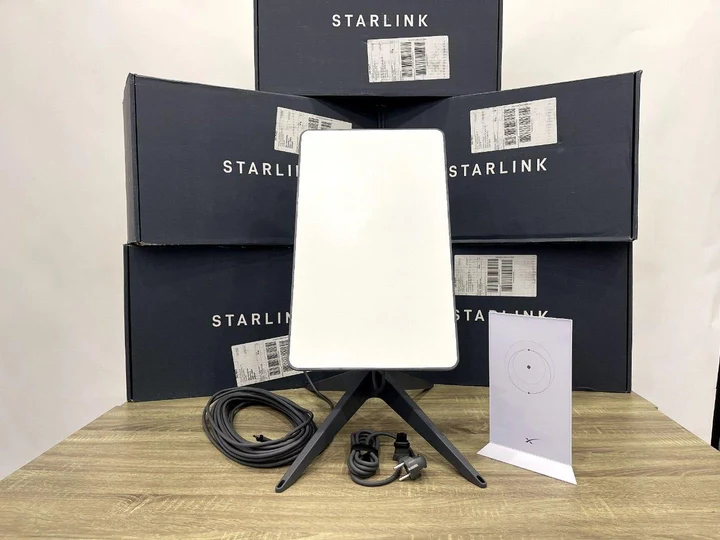Starlink continues to disrupt Africa’s traditional internet market with affordable pricing and reliable, high-speed connections, resulting in strong demand from cost-conscious consumers that has emptied shelves in nearly half of the African markets where it has gone live.
Elon Musk’s satellite internet service Starlink has sold out in major cities across five African countries, including Zimbabwe’s capital, Harare, just weeks after the new entrant received regulatory approval.
According to a coverage map on Starlink’s website, Nigeria has the highest number of cities—five in total—where the high-speed internet service kits have run out. These cities – Abuja, Kano, Lagos, Port Harcourt, and Warri – have all been labelled as ‘Sold Out.’
In Kenya, Starlink terminals have flown off the shelves in Nairobi. Terminals are no longer available in Lusaka, Zambia, while in Antananarivo, the capital of Madagascar, the status is labelled ‘expanding in 2025,’ indicating that potential customers in these markets will face a longer wait time for the kits.
The rapid sellout of Starlink terminals signals a growing demand for reliable internet access across Africa. This demand is fuelled by the significant drop in the price of the kits, which has rattled the continent’s internet market and prompted traditional providers to adapt their pricing strategies.
In Kenya, local internet providers like Safaricom have been forced to lower their prices to compete with Starlink’s competitive offering in a dynamic price war.
Starlink launched a more affordable kit and monthly plan in Kenya in September, just days after Safaricom, the country’s largest internet service provider, increased internet speeds across its fibre offering and restructured pricing plans to remain competitive.

The new Starlink Mini kit is priced at US$208.38, down from the original price of US$347.25 introduced in July 2023. Speeds of up to 100 Mbps appeal to cost-conscious consumers seeking high-speed internet access. A month earlier, Starlink introduced a monthly rental option for US$15, along with a one-time activation fee of US$21.
In response, Safaricom upgraded its services by enhancing its 10 Mbps package to 15 Mbps for US$23. Its highest-tier plan now offers a new 1 Gbps connection for US$155. Additionally, Safaricom customers on the 20 Mbps plan were upgraded to 30 Mbps at the same price. The 40 Mbps package was doubled to 80 Mbps for US$49, and the premium 100 Mbps package increased fivefold to 500 Mbps, costing US$97 per month.
Since entering the African market, the SpaceX-owned company Starlink has gained significant traction, becoming popular among users, especially in Kenya and Nigeria.
Data from Kenya’s Communications Authority (CA) shows that by June 30, 2024, Starlink had acquired over 8,000 customers in Kenya, which accounts for a 0.5% market share. Safaricom holds the largest market share at 36.4%.
“Satellite subscriptions maintained an upward trend following the launch of Starlink services during the year, with 96.6% of satellite customers subscribing to speeds between 100 Mbps to 1 Gbps,” said Kenya’s Communications Authority in its sector statistics report.
With its rapidly growing influence and subscriber base in Kenya, Safaricom ate a humble pie when the telco said it was open to partnerships with satellite internet providers.
“From a satellite perspective, we have to partner with Starlink or other satellite providers to ensure that technology is integrated throughout,” said Safaricom CEO Peter Ndegwa in September.
These sentiments came after Safaricom attempted to persuade the government through a protest letter to the regulatory authority, cautioning against granting independent licenses to satellite internet providers like Starlink. Safaricom cited concerns about harmful interference with mobile networks due to ‘indiscriminate permit approvals’.

However, in September, Kenya’s President, William Ruto, stated at a U.S.- Kenya Business Investment roundtable that Starlink’s market entry aligned with the country’s policy of enhancing internet connectivity.
By the end of 2023, following its launch in January of that year, Starlink had 23,897 active customers in Nigeria. This number is approaching the 27,000 active users of Nigeria’s second-largest provider, FiberOne, highlighting the newcomer’s impact on the market. Nigeria’s largest and oldest ISP, Spectranet, reported 113,869 active customers.
Starlink reached a global milestone of 3 million users across nearly 100 countries in May.
In Africa, Starlink has been approved to operate in Mozambique, Eswatini, Botswana, Rwanda, South Sudan, Burundi, Benin, Ghana, Sierra Leone, and Malawi, as well as Zimbabwe, Kenya, Nigeria, Zambia, and Madagascar.
Conrad Onyango, Bird Story Agency


